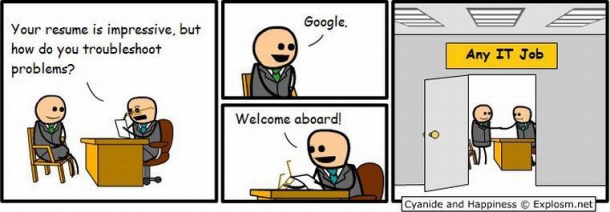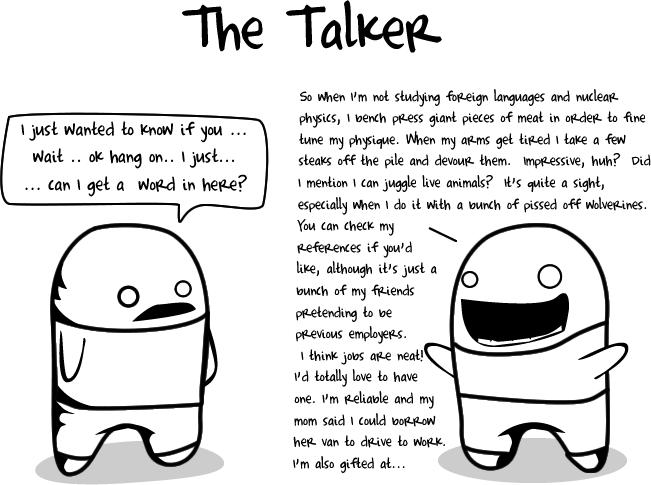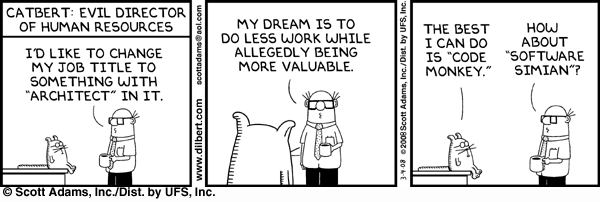Job seeker vs employer: a fresh look at HR approaches

Recently, several fairly emotional posts have been published on Habré (for example, here and here ), the main topic of which was the level of claims of potential employees and requirements for employers to candidates. As usual, opinions were divided, some believe that the applicants want a lot of money, but they don’t know anything, while not wanting to learn new things, others say that companies are trying to get employees to work for food, and young professionals don’t see and mess with them do not want. Having studied the whole range of opinions, we decided to speculate about the reasons for the current situation and talk about what and in this respect is arranged in the UIDG.
Why do we need a student, better find a superman

Any company is looking for applicants with a combination of experience and enthusiasm. But such people are rare, and today an employer is often forced to cultivate some of these qualities of employees on their own. At the same time, many still prefer to take on the work of already formed, ready-made specialists, rather than spend resources on training employees "for themselves." Plus here is obvious - so cheaper. Of the minuses - in the long term, there is a rather high probability of conflict situations caused by both overestimation / underestimation of professional qualities and misunderstanding at the interpersonal level. The reason for this may be unnoticed gaps in the knowledge of the applicant, and situations like “not worked together” within the team have not been canceled.
')
It is obvious that the recruitment of only fully formed specialists and “stars” is somewhat like patching holes on the road along which cars are traveling. In the course of work, such an employee will have to change something in himself, but to learn something again, and this is always more difficult than going through the whole even from scratch from the beginning.
At the same time, today the level of specialization in the field of IT is growing more and more, and there are many professions that did not exist a couple of years ago, universities simply do not have time to train highly specialized personnel. This naturally leads to a shortage of a huge number of specialists, the same interface designers. However, many job seekers continue to hold their enthusiasm as part of a hobby, convincing themselves of the impossibility of changing the gauge into which they are brought, for example, studying at an institution of higher education. The approach of such an applicant: “Yes, I like to study the logic of the work of various services and sites, but I have been studying a project manager for 6 years, why downgrade and retrain?”.
This logic is largely based on the conviction that an IT employer needs only students and graduates of technical colleges, which for the most part is true, but too crude an understanding of reality. However, as noted above, modern specialties in the field of IT (UI and UX in particular) are combinations of several basic disciplines at once, and very few people can reach it all at once.
In general, we at UIDG believe, given the current realities of the labor market, that it is easier to teach a good manager or a PM, but not the leadership qualities, of analytics. It is better to take a person with experience in psychology research, and then teach him the specifics of the technical aspects of his work - this is much more effective.
And what are you better than other companies?
In the dispute, who is right, the applicant or the employer, those who are on the side of the first one ask the reasonable question: “Do you want so much from a potential employee, and what can you yourself give him?”. Indeed, when choosing a workplace, job seekers often come not only from the size of the proposed salary, but also from other factors, such as the location of the office, the office itself (no one likes working in bad conditions), the possibility of a free schedule, etc.

And the point here is not so much in the democratization of orders and traditions in the company, but in a sober assessment of the situation. In the creative team (and the IT profession, of course, can be attributed to the creative) strict procedures that go down from above are unacceptable, ideally, employees should be able to build their own schedule, schedule deadlines, list of works, and so on. At UIDG, we went further, giving our employees a real opportunity to influence life in the company.
We are constantly going and discussing the current situation in the company - we are not only talking about work, but we are thinking about how we could improve the processes, the structure, and simply that we could buy something new in the office.
In addition, as already mentioned, employees are free to choose their own work schedule and have the opportunity to independently conduct the project from and to - if only the work was completed on time. If for effective work you need to work from home, then it means that you need to do it, if you need to arrange a meeting in a cafe with a view of the Kremlin - why not. In addition, we have a good practice when employees who work on projects also actively participate in the sales cycle (they prepare commercial proposals, etc.) - we do not have a separate sales department.
The highest sense of such a mix of different activities in a variety. People are not mechanical machines; having adjusted them once, you can get uninterrupted production. They tend to get tired, bored and lose interest in what is happening around.
In order to somewhat reduce the negative impact of everyday routine, it also makes sense to move away from the “hard” composition of project teams. Thus, on each new project, the employee works with new colleagues, which, firstly, gives the opportunity to work in different roles (consultant, specialist, negotiator) and different areas (banking, tourism, games, public resources). And secondly, working with a new colleague, which is quite possible in something better than you, is a new professional challenge and motivation to develop.
Total
Summarizing, it can be noted that in such a “humane” approach there is no less sense than in “worked-out” processes and corporate policies (although these things are certainly useful).
Now all the listed elements of sincerity and self-management seem completely natural, however, we have been going to this state of affairs for several years and, of course, it was not without difficulties. The result that we have now, everyone is very happy. Summing up his reasoning, it is worth emphasizing the fact that personnel policy issues are rather vague and are decided by each company depending on the current state of affairs, and we do not believe that the way we do is the only correct approach. Thank you all for your attention and good luck ^).
Author: Ksenia Gerasimova, Executive Director, UIDG.
PS This year our company is 10 years old and we decided to coincide with this significant event a series of posts telling the story of the foundation, formation and development of the company. We post these texts on our Blogger blog. If anyone is interested, then here are the first and second articles.
Pictures: explosm.net, theoatmeal.com, dilbert.com
Source: https://habr.com/ru/post/176223/
All Articles